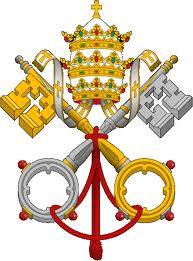Paul’s Rebuke of Peter
Some people look at Galatians 2:11-14 and wonder if it suggests that Peter was not the leader.
In Galatians 2, we read that Peter had a practice of eating with Gentiles. However, when some of James’ followers visited Antioch, Peter stopped eating with the Gentiles. We don’t know why the presence of James’ followers provoked this reaction from Peter, but it is clear that this was Paul’s observation. When Paul recognized this behavior he publicly rebuked Peter for avoiding the Gentiles as Paul found it to be contrary to the Gospel and inconsistent with Peter’s own teachings.
Some look at this and wonder how a person could publicly rebuke the Pope without serious ramifications. Throughout the Gospels, Peter was Christ’s closest follower. It seems pretty dramatic to think that another significant figure in the early Church such as Paul, felt compelled to confront Peter in public. Could this mean that Peter actually answered to Paul? I look at this situation from at least two perspectives and see that it does not indicate that Peter was anything but the 1st leader as I discussed in my two previous blogs.
First, Paul was not disputing any teaching of Peter. In fact, he was supporting a teaching of Peter. Right before the rebuke, Paul tells us about an earlier situation in which he took this very teaching before the “acknowledge leaders” in Jerusalem (also found in Acts 15:1-21). Paul had experienced a revelation that told him that he had been entrusted with the task of preaching the Gospel to the Gentiles. Peter was one of the “acknowledge leaders” to whom Paul had gone to make certain the Church approved of it. Peter agreed that the Gentiles, as well as the Jews, were to be given the good news of the Gospel.
Therefore, Peter’s withdrawal from the gentiles was hypocritical behavior and Paul called him on it. When Paul confronted Peter, he respectfully identified him as Cephas, not simply as Simon. This use of the name that Christ had given Peter could indicate Paul’s respect for Peter’s special office. But the most important point to take from this perspective is that Peter’s mistake was simple human behavior, not a matter of doctrine.
This is a great illustration of the difference between infallibility and impeccability. The Church has never taught that the Pope is beyond correction (impeccable). Each Pope, beginning with Peter had the charism of infallibility which is the ability to declare and teach on issues of faith and morals without error (Jn 16:13; Jn 14:26; Lk 10:16; Mt 28:20; 1 Tim 3:15). But each Pope, beginning with Peter, still has all the typical human frailties, so they all sin, commit mathematical errors, say things incorrectly and commit other mistakes.
A later example of Paul’s rebuke of Peter is mirrored by St. Catherine of Siena. Due to wars, politics, taxes and deception, Pope Clement V had moved the papacy to France in 1309. By catering to the powerful King of France, subsequent popes had come to be regarded as puppets to the powerful French King. By the late 1300’s, St. Catherine had determined that it was essential that the pope return to Rome. But Pope Gregory XI feared that he would be killed if he moved the papacy back to Rome. St. Catherine strongly criticized Pope Gregory XI, telling him, “…be not a timorous child but manly”, because he had heard her urgings, but wavered and considered keeping the papacy in Avignon, France. In the end, St. Catharine convinced Pope Gregory XI that he was failing to live up to his obligation to reside within his diocese (which was Rome) and he moved the papacy back to Rome.
A second perspective is the learning opportunity Paul’s rebuke provided the early Christians as well as Christians of today. As we see on many occasions in the Gospels, Christ used Peter’s actions and words as perfect opportunities to teach. Peter serves that role once again in Galatians and it is Paul who has the privilege of teaching us that we must live by Christ’s teachings, not rituals and laws of men, otherwise Christ died for nothing. Peter’s mistake gives St. Paul the opportunity to give us a valuable lesson on the new covenant and the significance of the Passion. Peter’s poor decision in which he shunned the Gentiles served as the fuel to Paul’s powerful letter to the Galatians.




